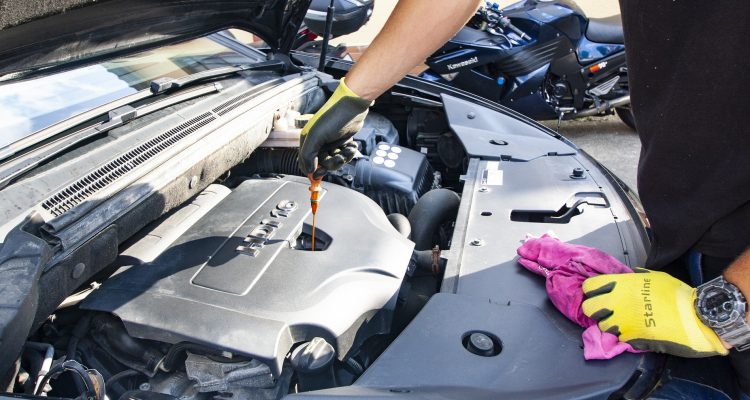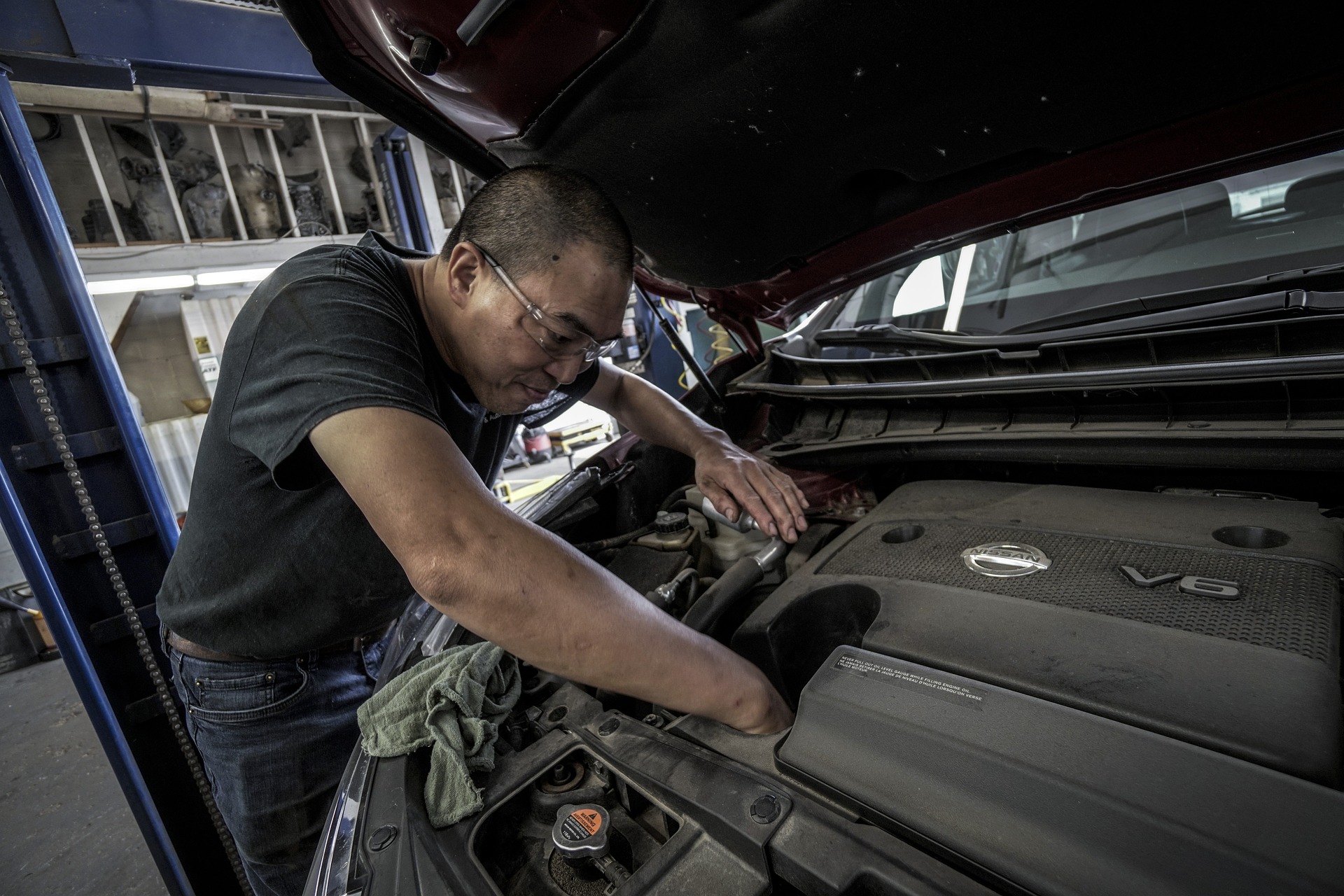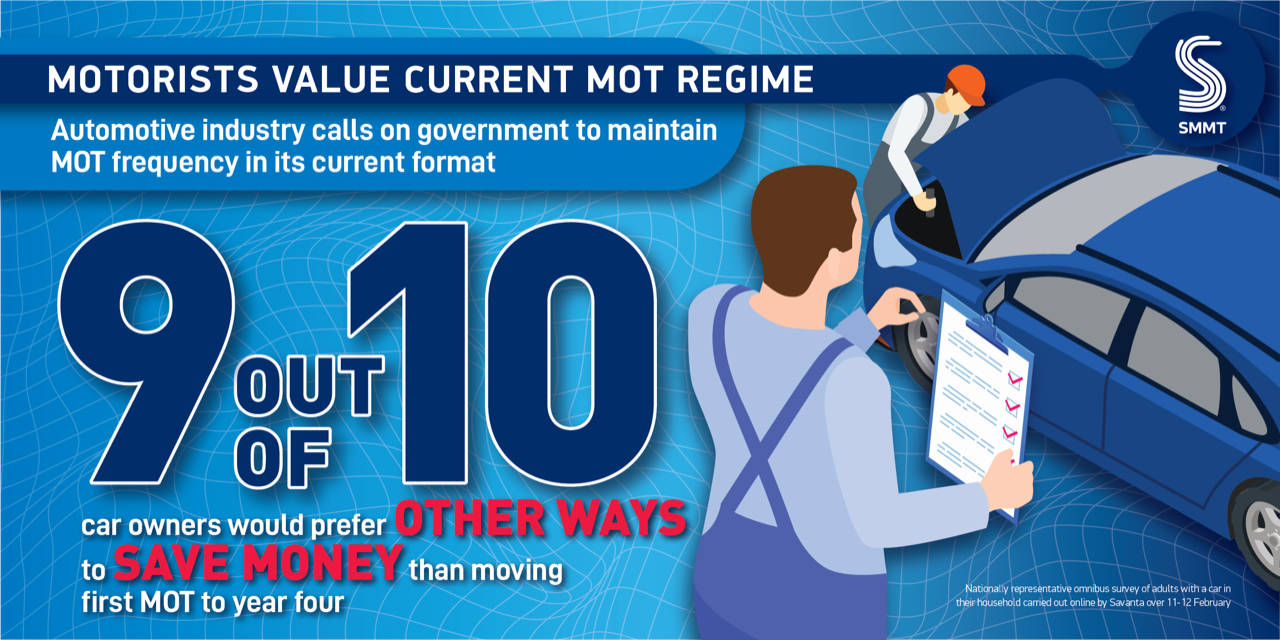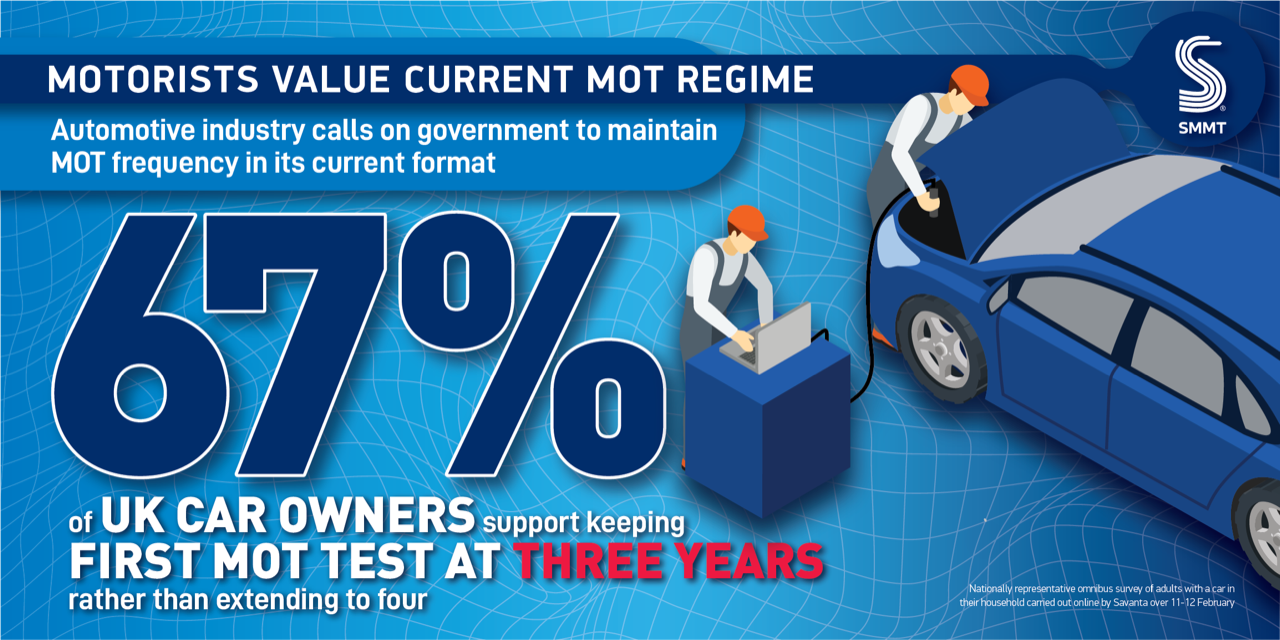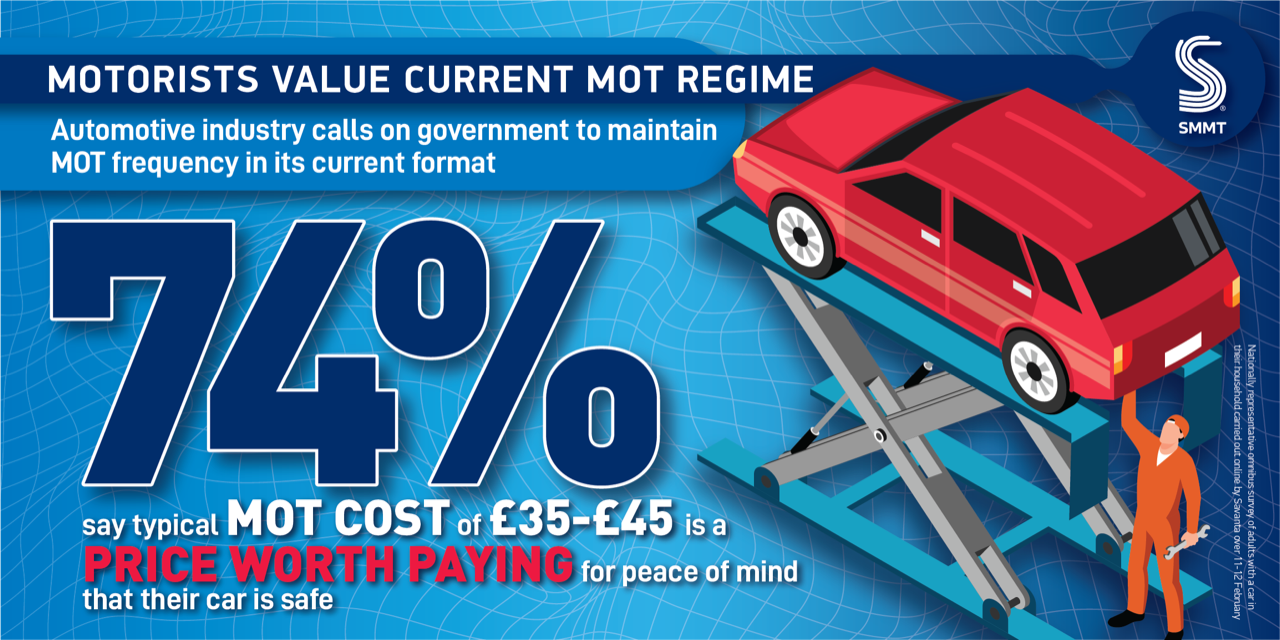A report from Startline Motor Finance found that almost nine out of 10 (89%) drivers agree with a new Government proposal to extend the first MOT test on cars from three to four years, new research shows.
The vast majority – 71% – say that modern cars remain safe up to four years old without being tested. Interestingly, reducing costs does not seem to be a major motivation with only 36% saying it would lead to savings for motorists.
Paul Burgess, CEO at Startline Motor Finance, said: “There’s clearly overwhelming public backing for this move, according to our findings. This puts the public very much at odds with the motor industry, which generally believes that a three year MOT is essential and has been very vocal in criticising the idea.
“It’s striking that only around one in three people say that the cost of the test is a factor in backing the government’s proposal. It appears that drivers simply have a high degree of confidence in the ability of modern cars to resist any kind of treatment, believing that major faults are unlikely to arise by extending the test for a year.”
Paul added: “From a corporate point of view, we very much agree with this 10%. While many cars fly through their three year MOT test and are still very much in a roadworthy condition when they pass the four year mark, others don’t.
“You can talk to almost any motor mechanic and hear horror stories about what they have found when they have put cars up on the ramp for their first MOT – from failed suspension parts to tyres with literally no tread. It’s worth remembering that many cars of this age, especially those used on business, have covered a substantial number of miles.
“The MOT test plays a part in taking dangerous cars off the road that are a risk to not just their driver and passengers but all road users. It will be very interesting to hear the results of the government consultation.”
However, research from the Society of Motor Manufacturers and Traders (SMMT) returned opposite results. 67% of UK motorists said they were concerned that extending the MOT would put lives in danger with three quarters agreeing that the typical £35-£45 cost of a test is a price worth paying for the peace of mind it provides that their car is safe and roadworthy.
Government is consulting on delaying a car’s first MOT from when it is three years old to four or five years in a bid to save motorists money. Government says this change would deliver a cumulative saving to owners of three year old cars worth between £91 and £117 million, based on 2.6 million first presentation tests. For the average driver this would represent a saving of £35-£45 over the first three years’ ownership – or 23p-29p a week.
Some nine in 10 respondents to the survey (87%) said they would prefer other ways to save money, for example, a reduction in VED or a cut in fuel duty, over a delay in a safety check of their vehicle. Moreover, given the survey found that 66% of respondents spend more than the typical price of an MOT in fuel alone over just two weeks, it would take a cut in fuel duty of between a fifth and a quarter of a penny to deliver the same total saving across all motorists, not just those with relatively new cars.
While billions of pounds of investment by vehicle manufacturers has made vehicles safer for drivers and other road users thanks to innovations such as collision avoidance systems, adaptive cruise control, autonomous emergency braking and blind spot monitoring, the MOT test often remains the first opportunity to identify natural wear and tear on safety-critical components such as tyres and brakes.
More than 300,000 vehicles fail their first MOT through failure to meet minimum safety requirements, with fails frequently associated with tyres, brakes, lights and suspension. Indeed, the survey reveals just how heavily drivers rely on the MOT and aftermarket, service and repair sectors for checks on these common faults.
Nearly a quarter (23%) don’t regularly check that their brakes are working correctly, almost a fifth (19%) whether their tyres are okay (which should be done monthly), and 17% that their lights and indicators are functioning. These three areas accounted for nearly a quarter of a million failure items alone in 2022 . Unsurprisingly, 66% of respondents say they would not purchase a three-year-old car without an MOT.
Mike Hawes, SMMT Chief Executive, said, “Safety is the number one priority for the automotive industry and the MOT is a crucial component in keeping the UK’s vehicles and roads safe. Our survey shows that drivers support the existing MOT frequency and that there is little appetite to change it, despite the increased cost of living. If changes to the MOT are to be made, these should enable testing of advanced electrified powertrains, driver assistance technologies and connected and automated features, as drivers value the peace of mind the MOT offers.”
Seven in 10 motorists usually get their car serviced at the same time as their MOT. With the cost of living increasing, however, more than a third of drivers now say they will reduce spending on car maintenance. This reinforces the importance of keeping MOT frequency at three years, and annually thereafter, to help drive regular vehicle servicing. Given that six in 10 would commit no more than £600 a year to maintaining their vehicle – less than the average annual spend on takeaway food – the link between the MOT check and service frequency cannot be underestimated.3
In fact, evidence from the period of Covid-19 lockdowns when motorists were granted MOT extensions shows that failure rates increased by 2-3%, despite significantly lower vehicle mileages driven, the conclusion being that car owners had not maintained their vehicles during the period of MOT exemption.
SMMT is therefore calling on government to maintain the requirement for a first MOT at year three, and annually thereafter, while also introducing improved emissions tests and adaptations in line with the shift in technology to electrification and advanced driver systems.
Finally, the AA in their research found that more than three quarters of drivers (77%) do not wish to change the annual MOT according to a poll carried out by the AA. The poll of more than 14,500 drivers was asked following a proposal from the government about changing the vehicle safety test from every 12 months to every 24 months.
The survey also found that more than nine out of 10 drivers (92%) say that an annual MOT plays a key role in keeping dangerous vehicles off the road. Three quarters (75%) of drivers said that the with the advancement of driver assistance and varying levels of autonomous technology being introduced on cars these too should form part of the annual test.
A consultation on the future of the MOT which considers moving to a test every 24 months rather than 12 months, and having the first MOT at four years rather than three, closes on Wednesday. It also asks for comments about expanding the items checked to take into account the rise of electric vehicles and the prospect of partial and fully autonomous vehicle technology on vehicles.
The AA’s submission to the consultation argues against changing the frequency of testing but supports modernising the requirements of the MOT.
Jack Cousens, head of roads policy for the AA, said: “On safety grounds alone, it would be foolish to move away from an annual test and indeed moving the first MOT to four years as many cars show up with brake or tyre defects in that period. Our photos are evidence that some vehicles are kept on the road in varying degrees of disrepair, with more than a quarter (27.88%) of cars and vans initially failing their MOT.
“Modernising and future-proofing the MOT is a natural next step and will help give consumers confidence should they purchase an electric car, one with highly complex driver assistance packages or indeed a connected car.
“Similarly, a fifth (20%) of drivers believe it is worth investigating if MOTs can be carried out away from garages in an effort to help drivers stay on the road. In the future we believe that various aspects of the MOT could be carried out remotely using connected car technology.”


